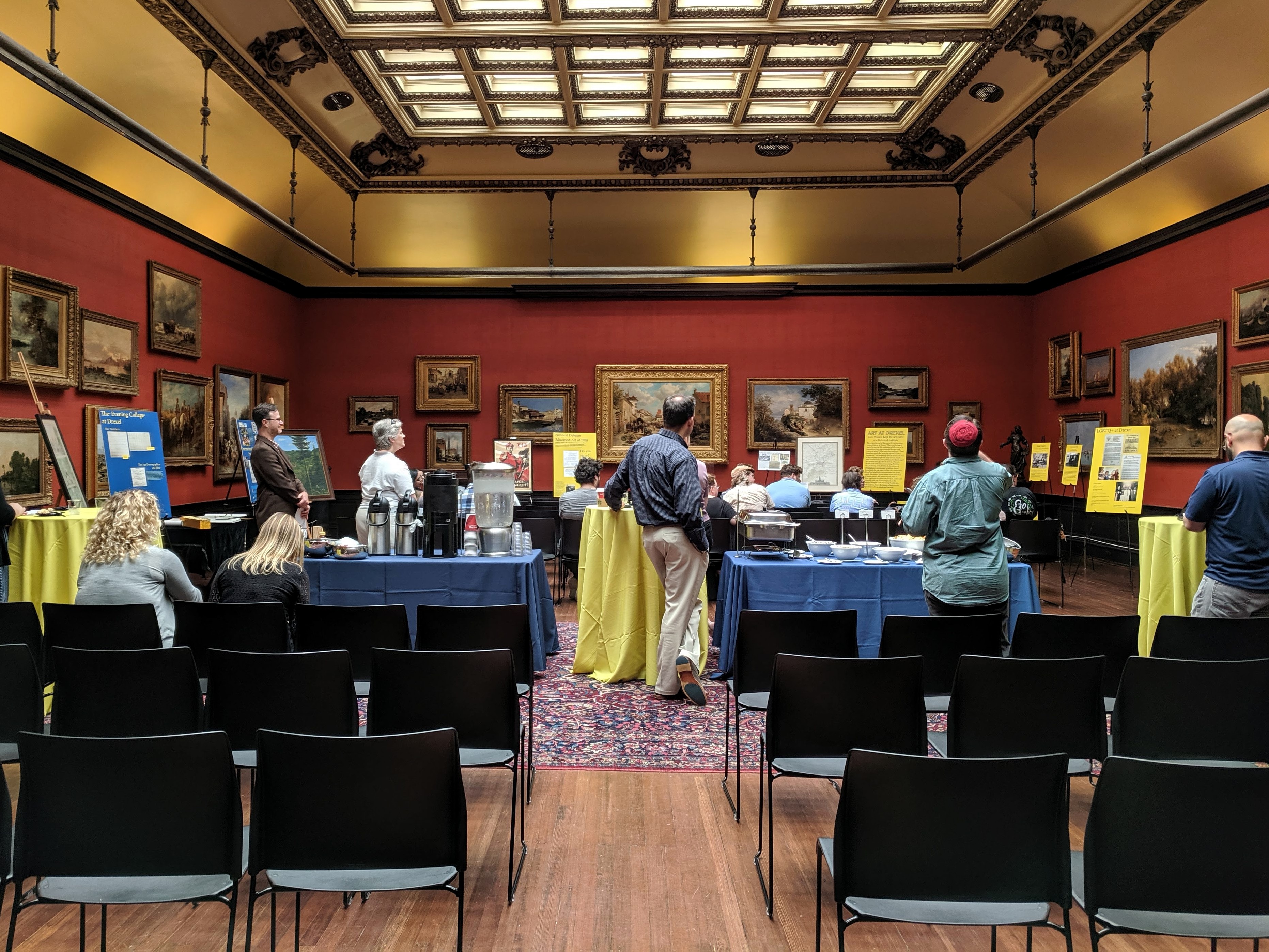Students Discover Drexel’s Diverse History in University Archives
July 9, 2019
Saloni Shetty had no idea that prestigious past Drexel presidents like James Creese and Richard Breslin played active roles in recruiting and building the University’s international student population and its student exchange program.
But that’s exactly what she and four other classmates discovered through their research in the Drexel University Archives for Professor Scott Knowles’ course, The History of Drexel University. As part of the class, students were tasked with conducting research in the University Archives on topics around the history of diversity at Drexel. Their final projects and the results of their research were displayed in a pop-up exhibition held June 11 in the A. J. Drexel Picture Gallery.
“It was surprising to learn that the president of a major university would get into the nitty gritty of [recruitment], but it was really interesting to learn about Drexel’s commitment to bringing international students to campus,” explained Shetty, who graduated from Drexel in June. “The University’s founding family—the Drexels—came from Europe, and what we found in the [University Archives] shows they brought that global mindset with them, and it has persisted throughout the school’s history.”
During their research, students not only learned about the University, but they also had a unique opportunity to work closely with Archives staff to gain first-hand experience doing archival research.
University Archivist Matthew Lyons explained that students in a number of classes have visited the University Archives in the past, but this time the staff took a different approach to help students really dig into the collections.
“When students visit the Archives, we generally talk about what we do and we’ll show them a few pieces from the collection,” Lyons explained. “For this class, we – and Scott [Knowles] – wanted to focus more on archival research. Jesse Brody, Archives Technician, walked students through the steps of research. He spoke extensively about how to follow threads and how to redirect your inquiry depending on the information and the pieces you find. We wanted students to see that archival research can be frustrating, but you can also find a lot of really unexpected information in the process.”
One student started out researching women’s history at Drexel, and the project evolved to focus on the history of Drexel’s Antoinette Westphal College of Media Arts & Design, specifically the College’s shift from home economics to art and design, as well as the shifting notions about what was suitable for women to study.
Lyons and Brody also led research strategy discussions for the class. For example, students talked about the topics they selected, and the Archives staff offered suggestions on ways to pursue research on those topics. Students also explored the Archives’ finding aids, as well as old issues of The Triangle, the University’s student newspaper.
This project did more than give students the opportunity to learn in the Archives. Their work also helped the Archives identify gaps in the existing collection, Lyons explained.
“We are always on the lookout for ways to fill gaps in our collections, and projects like this help us identify what we’re missing,” he said. “For example, we have very limited holdings on the history of student organizations or LGBTQ+ people and groups at Drexel, and those are areas in which we would like to bring in more materials. I would welcome the chance to talk with student organizations—or any members of the Drexel community—about materials they have that might be good additions to our holdings. We’re interested in lots of different kinds of materials that document life at Drexel University and its history.”
For more information about partnering with the Drexel University Archives or to learn more about donating materials related to the history of Drexel, contact archives@drexel.edu